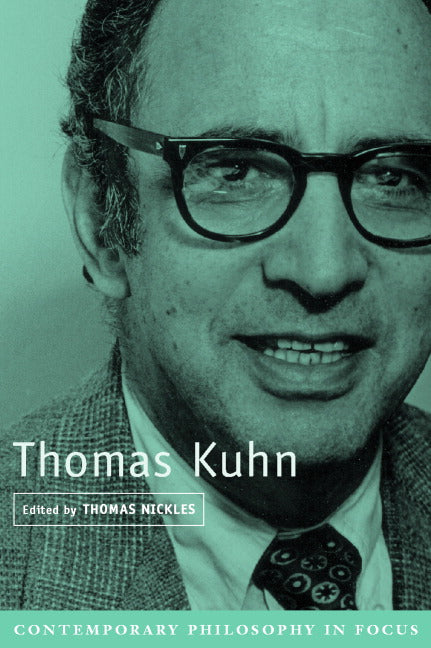Freshly Printed - allow 8 days lead
Couldn't load pickup availability
Thomas Kuhn
An introduction to the life and work of Thomas Kuhn, probably the best-known historian and philosopher of science of the last 25 years.
Thomas Nickles (Edited by)
9780521796484, Cambridge University Press
Paperback, published 28 October 2002
312 pages, 9 b/w illus.
23.3 x 15.3 x 2 cm, 0.43 kg
"Nickles has given us an interesting and stimulating volume." Metapsychology
Contemporary Philosophy in Focus offers a series of introductory volumes to many of the dominant philosophical thinkers of the current age. Thomas Kuhn (1922–96), the author of The Structure of Scientific Revolutions, is probably the best-known and most influential historian and philosopher of science of the last 25 years, and has become something of a cultural icon. His concepts of paradigm, paradigm change and incommensurability have changed the way we think about science. This volume offers an introduction to Kuhn's life and work and then considers the implications of Kuhn's work for philosophy, cognitive psychology, social studies of science and feminism. The volume is more than a retrospective on Kuhn, exploring future developments of cognitive and information services along Kuhnian lines. Outside of philosophy the volume will be of particular interest to professionals and students in cognitive science, history of science, science studies and cultural studies.
Introduction
1. Kuhn and logical empiricism Michael Friedman
2. Thomas Kuhn and French philosophy of science Gary Gutting
3. Normal science and dogmatism, paradigms and progress: Kuhn 'versus' Popper and Lakatos John Worrall
4. Kuhn's philosophy of science practice Joseph Rouse
5. Thomas Kuhn and the problem of social order in science Barry Barnes
6. Normal science: from logic to case-based and model-based reasoning Thomas Nickles
7. Kuhn, conceptual change, and cognitive science Nancy J. Nersessian
8. Kuhn on concepts and categorization Peter Barker, Xiang Chen and Hanne Andersen
9. Kuhn's world changes Richard E. Grandy
10. Does The Structure of Scientific Revolutions permit a feminist revolution in science? Helen Longino.
Subject Areas: History of science [PDX], Cultural studies [JFC], Philosophy [HP]


